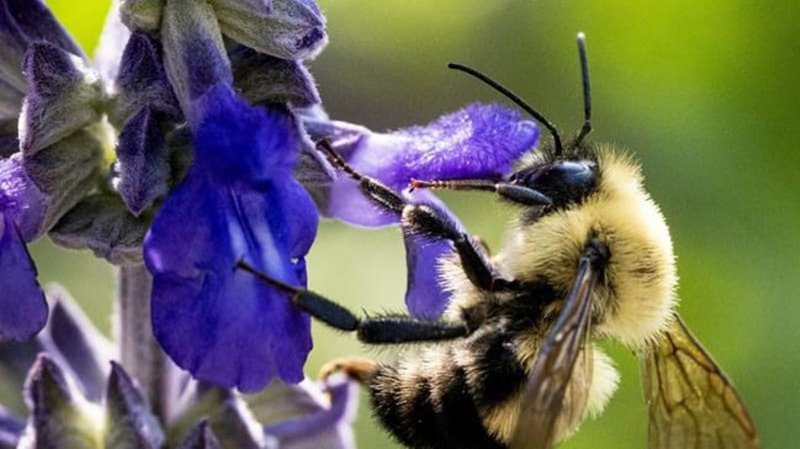
Lack of bees, pollination limiting crop yields across U.S., B.C., study finds
WINNIPEG — A lack of wild bees and managed honey bees is limiting pollination and yields for certain crops on farms in British Columbia and across the United States, a collective of researchers has found.
Their study published Tuesday in the Royal Society’s journal Biological Sciences used data from more than 130 farms to assess the pollination of crop flowers and yield for apples, highbush blueberries, sweet and tart cherries, almonds, pumpkins and watermelon.
Of those crops, the study found five frequently showed evidence of pollinator limitation, suggesting that the protection of wild bees and greater investment in honey bee colonies is likely to boost yields.
It notes that crops dependent on pollinators generate more than US$50 billion each year in the United States and declining bee populations raise concerns about food security in years to come.
